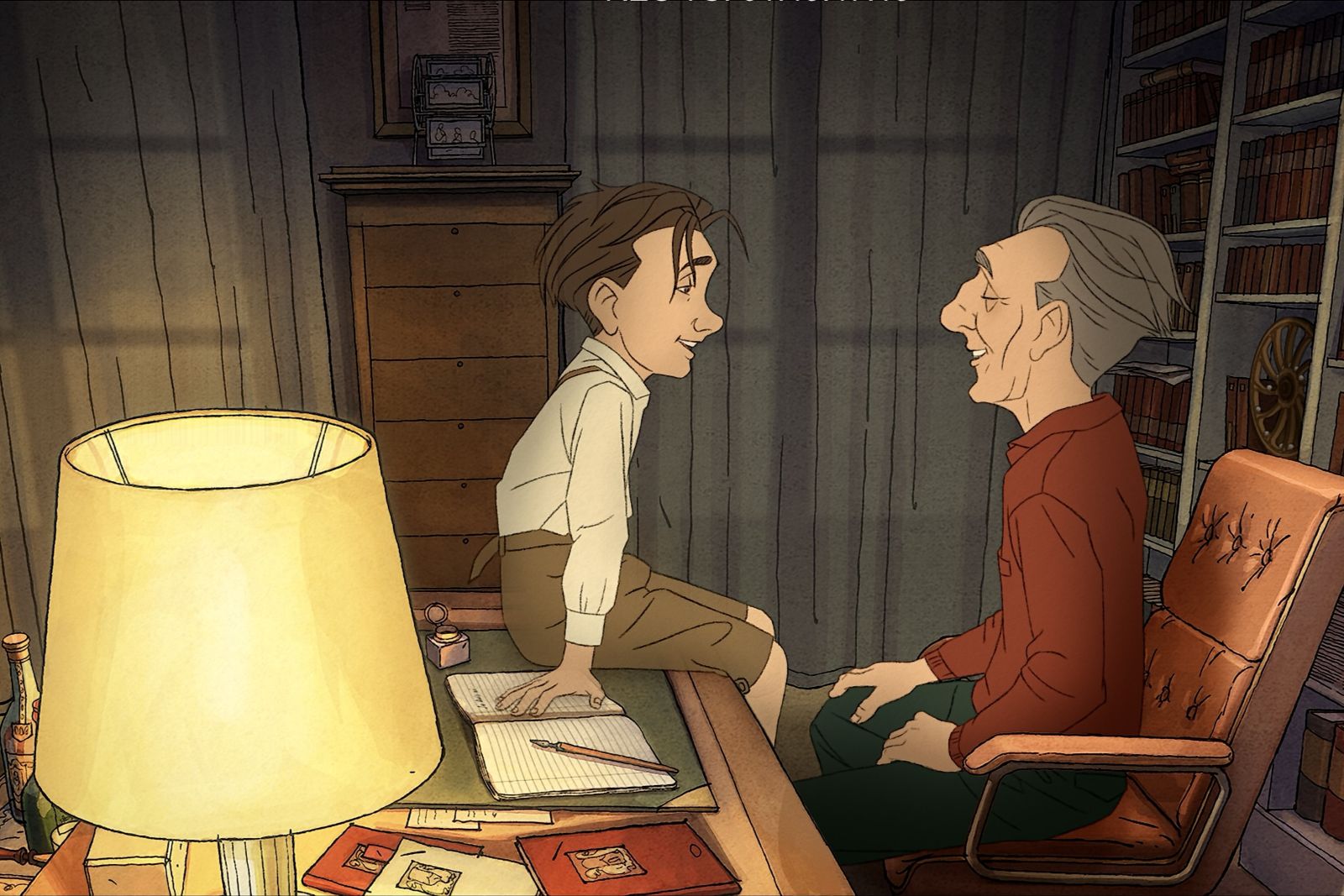Marcel Pagnol might be best known in the UK as the author of Jean de Florette and Manon des sources, which became quintessential arthouse darlings when brought to the screen by Claude Berri in the ’80s. In France, he holds a much higher cache as a Renaissance man par excellence. A gifted polymath who achieved success in theatre, film, and literature, he’s one of the giants of 20th century French culture. Animator Sylvain Chomet (The Triplets of Belleville, The Illusionist) is clearly enamoured of the great man, as this gorgeous if slightly hagiographic retelling of his life story demonstrates.
We meet Pagnol at age 60, agonising over the blank first page of what would become his collection of essays, Confidences. He’s visited by Marcel, Pagnol himself as a mischevious young boy, who acts as something of a benignly Dickensian guide through the successes and failures of the life and career of his adult self, from his early poverty as a playwright, dismissed as a bumpkin by the intelligentsia due to his origins in Marseilles, to his career-spanning essays.
Chomet’s brilliance here is using the animated medium to illuminate its subject in a way that live-action film simply cannot. In the same way he conjured the spirit of Jacques Tati in the streets of Edinburgh in The Illusionist, he is able to find infinite shades of joy and melancholy in the slightly exaggerated animated avatar of Pagnol. It’s way more successful method of capturing the spirit of the man than prosthetics would allow (see Bradley Cooper’s (mis?)use of such as Leonard Bernstein in Maestro). The format also allows for broader and more slapstick humour than would work in the flesh. It also adapts hauntingly to a more impressionistic approach taken for moments of great pain, such as the heart-wrenching early death of Pagnol’s young daughter, a reminder of the great emotional power animation can achieve, from Bambi through to Up.
Perhaps the film’s most striking aspect is in its time-crunching conceit. It’s also its most obvious flaw. Interestingly, the young Marcel is able to interact with, and therefore subtly manipulate, the various people with whom Pagnol comes into contact. This hints at certain ideas about fate, or perhaps the belief in some divine providence that are never expanded on, a narrative device that opens up avenues that are never explored. This is a shame, as apart from Chomet’s always lovingly crafted, intensely beautiful style, A Magnificent Life is a fairly standard biopic which is perhaps more likely to interest fans of Chomet himself than it is to entice new devotees to the altar of Marcel Pagnol.
Whatever reason you may have to seek out A Magnificent Life, you’ll be treated to a fine work of painstaking detail made by a master craftsman. It may lack the quirky inventiveness of his celebrated earlier works, but Marcel Pagnol’s life is worth exploring, especially in such a beautiful way.
Screened as part of French Film Festival 2025


Comments